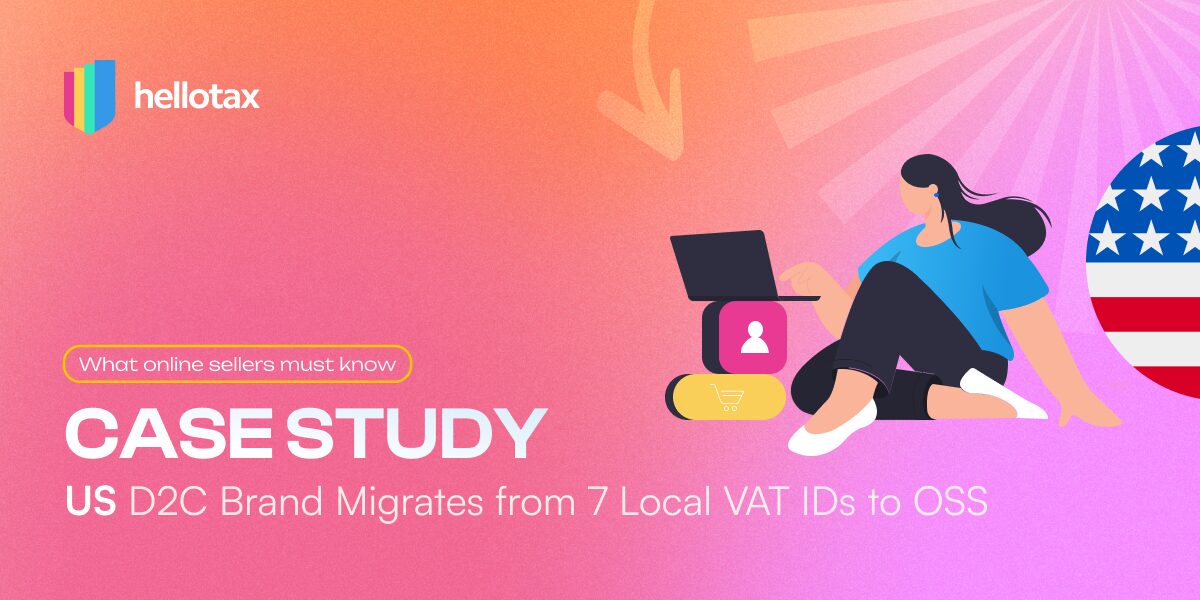With the introduction of the Quick Fixes, the first step for a Europe-wide tax reform was made. In addition, EU countries are improving their VAT systems also on a national basis. Here you find what has changed in Spain, what the Quick Fixe status is and which other tax changes there will be in the near future.
Antonia Klatt
Last Updated on 25 February 2020
Digital platforms will have to collect VAT in 2021
Fernando Matesanz, director of the Spanish VAT Services Associates, announced at the Madrid VAT Forum 2020 that from 1 January 2021, digital platforms that “facilitate” the trade of goods must collect VAT from companies selling on the platform and then enter it into the TAX administration. Like the changes in the marketplace obligations in France, this measure is not only meant to facilitate trade, but also to fight VAT fraud.
This will also affect goods that are imported from third countries with an intrinsic value of less than €150 – regardless of whether sales are made by companies established in the EU or outside and distance sales of goods when they are carried out by companies established outside the community territory.
Further, there will be changes in the special import declaration (MOSS). This will now only apply to services and from January 2021, it will be extended to remote goods deliveries. This measure will allow sellers not to register in multiple countries, as they may enter VAT on all goods sold in the European Union in the Member State of identification. This will only be possible if the final consumer is resident in the country of import.
In addition, there is planned to introduce a Europe-wide VAT threshold limit for distance selling of € 10,000 once reached will then lead to tax duties in the country of export. However, as there are quite a few uncertainties regarding this uniform threshold, we will keep you update das soon as there are clear regulations on how the implementation and the related tax duties will look like.
Implementation of Quick Fixes in Spain
As part of the Quick Fixes, Spain has introduced big changes in the handling of intra-community trade and call-off-stock arrangements.
Introduction of new regulations for intra-community trade
Since February 4, some of the relevant adaptions for simplifying and harmonizing trade in goods within the EU were realized. Regarding intra-community trade, the changes will be:
- Having a valid VAT number is now a legal requirement for tax exemption of intra-community deliveries
- It’s mandatory to provide documentary proof for the shipping. This proof of transport to another EU country needs to contain at least 2 identical pieces of proof which are provided by independent third parties.

Regulations for call-off stock arrangements and the SII
When it comes to intra-community trade, there were also new regulations introduced to harmonize the call-off stock arrangements.
Call-off stock:This term describes the transfer of goods from one EU country to another one in order create a stock of goods. From this stock, the customer can call-off the goods.
Currently, this operative gives rise to a deemed supply in country of departure of the goods and a deemed intra-community acquisition in the country of arrival which is followed by a ‘domestic’ supply in the country of arrival. This process requires the supplier to be identified for VAT purposes in the destination country.
Now, there is a new way of handling call-off stock arrangements as the VAT Directive specifically addressed the regime of call-off stock arrangements in a new law. According to this, the formal obligation to keep a register of the transactions incurred within this arrangement is introduced.
Further, the regulations were also modified to include call-off stock transactions among those to be declared at the recapitulative returns and include the same among those to be included at the VAT register of certain intracommunity transactions.
Note: The obligation to report affect not only to the company dispatching the goods to be affected to a call-off stock, but also to the company to which these goods will actually be delivered out of such stock, circumstance which may give rise to problems as to the timely obtention the required information so both parties can comply with their respective reporting obligations.
Spanish government approves digital services tax targeting large multinationals
On 18th February the Spanish government presented a draft law to introduce a digital tax.
On the one hand it aims to tackle the tax challenges of the digital economy and on the other hand the government says that multinational companies are currently not paying taxes in a fair way despite the fact that these companies are among the ones with the highest turnovers.
Even though there is a broad consensus within the Spanish government regarding the introduction of this new digital tax, the law has yet to be passed. However, as already mentioned, it is strongly assumed that this digital tax will be introduced, the question is rather when this will be.
So, the introduction date is not yet clear, but an agreement will probably be reached in the course of 2020 – whether the tax will then be collected at the end of the year or at the beginning of 2021 remains to be seen.

Book a free consultation
Our VAT experts are happy to help you. Book a free consultation today!
New criterion for the use and enjoyment rule
The Spanish High Court, the Tribunal Supremo, has recently issued a judgment which is related to the application of the so-called use and enjoyment rule.
The rule subjects to Spanish VAT certain services (mainly those intangible) where the recipient is established in a third non-EU country and the recipient directly uses the services to carry out operations subject to VAT in Spain. The partial application of this rule has been admitted by the Spanish tax authorities and the courts in cases where the recipient uses the services not only for its taxable activities in Spain, but also in other countries using a proportional income calculation.
In almost all EU countries there will be new tax reforms and regulations in 2020 and the years after and that in addition to the EU-wide Quick Fixes. No worries, we keep you updated about relevant tax changes!
Please also check out our articles about VAT changes in Austria and VAT changes in Italy. More will follow.


